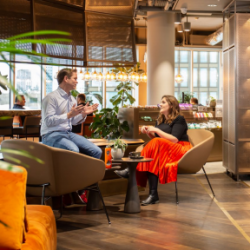September 22, 2022
Getting working culture right is essential to hiring, supporting and retaining workers
 As workers continue to adjust workstyles to fit with their new priorities, a PwC survey reveals nearly two-thirds of workers are on the hunt for a new job. Many employers are scrambling for strategies to attract top talent and retain their employees. But actively developing working culture and designing new ways to secure the best talent and look after it requires first listening and reacting to the impact the changing work landscape is having on employees’ mental and physical health, as well as understanding and prioritising new and sought-after benefits. (more…)
As workers continue to adjust workstyles to fit with their new priorities, a PwC survey reveals nearly two-thirds of workers are on the hunt for a new job. Many employers are scrambling for strategies to attract top talent and retain their employees. But actively developing working culture and designing new ways to secure the best talent and look after it requires first listening and reacting to the impact the changing work landscape is having on employees’ mental and physical health, as well as understanding and prioritising new and sought-after benefits. (more…)
































September 30, 2022
There is no F in work
by James Woudhuysen • Comment, Flexible working, Wellbeing, Workplace design
(more…)